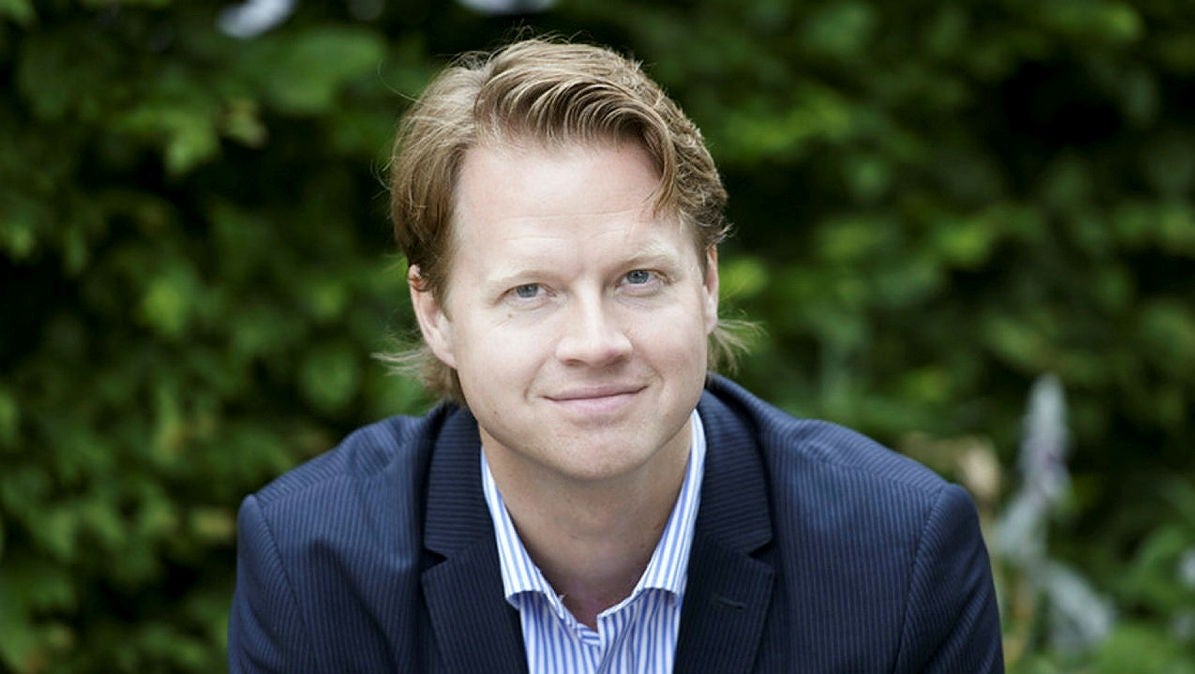The Prime Minister, AI, and Luke Skywalker
Swedish Prime Minister’s AI Use Sparks Debate
Prime Minister Ulf Kristersson’s recent announcement that he, like many of his contemporaries in business, academia, and culture, uses AI tools as a kind of “sounding board” in his work, has sparked concern in parts of the political sphere. On social media, the usual forum for indignation and misunderstanding, there were whispers of shifting responsibility, democratic deficits, and artificial influence. Or worse, of giving foreign powers information about what the Prime Minister is thinking.
Dagens Nyheter columnist Kristofer Ahlströmer writes, “How smart is it to discuss policy decisions with a bootlicking chatbot? Sweden deserves a better life coach.” In Expressen, Jakob Ohlsson calls Ulf Kristersson an “amateur.” Simone Fischer-Hübner, a computer science researcher at Karlstad University, tells Aftonbladet that “it is known that AI that cannot find the right information can hallucinate and come up with something of its own that is sometimes incorrect.”
Virginia Dignum, professor of responsible artificial intelligence at Umeå University, tells Dagens Nyheter that AI does not have the ability to give political proposals and that it gives an “opinion that is sponsored by those who built it.” “That so many voluntarily outsource their brains to a probability machine is bananas, that the Prime Minister does it… well, I don’t even know what to say,” writes Victor Malm, culture editor at Expressen, in a tweet on X. Commentator Daniel Swedin, political editor for Arbetet, believes Kristersson’s use is “a bit depressing.”
One dissenting voice outside the government who has been positive is Mathias Sundin, a member of the government’s AI commission, who says that Kristersson’s use can “reduce tunnel vision,” but he also writes in a post on LinkedIn that Kristersson “of course must (-) think about what thoughts he airs, but that is nothing new or unique to AI.”
That new technology creates wrinkles on foreheads is part of humanity’s cultural heritage. When Carl Bildt, with the modem’s reassuring hum in the background, began sending e-mails to Bill Clinton in the mid-1990s, it was a shift that many viewed with skepticism.
It is not the use of new technology that is a problem, it is the lack of understanding of it that is the problem. Our biggest democratic dilemma is not that the Prime Minister uses ChatGPT; it would rather be a democratic failing if he did not understand that thousands of officials, communicators, journalists, and lobbyists already do. To pretend that these tools do not exist, or to treat them as magical oracles from the future, is to abdicate from leadership’s intellectual responsibility.
Then perhaps it is not appropriate to use the tools for all questions, but that also applies to the Prime Minister’s mobile phone or laptop… The security issue is not unique to the use of AI services. As Mathias Sundin notes in his post on LinkedIn, there are potential problems with other services and products that the government uses. I assume that both the Government Offices’ and the Prime Minister’s security officers and related support have full control of the situation regarding all the tools that the Prime Minister uses.
Hopefully, this debate can lead to the question of how Sweden and Swedish authorities can increase the speed of the projects that are already underway to create digital resilience and, as far as possible, autonomy. It becomes a bit special when we who are outside the Prime Minister’s office, as some kind of armchair experts, try to determine what can be done and when and how with new technical tools and what security issues should be asked.
AI is not a thinking being. AI today is what a screwdriver is for a carpenter. A tool that can help to give faster results. It just needs to be used in the right way. It is an enhanced notebook, a much faster researcher with questionable source criticism. “Bouncing ideas” with AI is about as dramatic as using a spell checker.
This is where one can draw the historical parallels. When the typewriter replaced the pen, a debate followed about young people’s handwriting. It is a debate that continues a hundred years later, but few would want to abolish the word processor and spell checker today. When the printing press made its entry, contemporaries warned that books would spread dangerous ideas among the rabble. That turned out to be correct, in a way. When the computer gained a foothold in workplaces, some debaters thought that work itself would disappear. Socrates did not even like writing itself. In all these cases, it was not the technology itself that determined the outcome, it was the leadership’s ability to understand and control it.
We have a tendency to turn every new technical tool into a moral dilemma. This is clear even in the reactions to the Prime Minister’s AI use. What would the alternative have been? That he should never test the tool that large parts of the world are currently striving to regulate, master, and understand? In a world where the EU, the US, and China are all competing for AI hegemony, it is rather a sign of strength that the Swedish head of government dares to dip his toes in the latest electrons.
What we need is not fewer politicians who try new technology, but more who understand its implications. The world is no longer governed exclusively from plenary halls and chancellories, but from program code, large language models, algorithms, and protocols. Those who dare to interact with the technology, ask questions of it, test its limits, build experience. From this experience, hopefully, wisdom is born that can later lead to wise, balanced regulation of, among other things, AI. The critics all have certain points in what they say, especially regarding the security aspects, but in the trade-off between having a Prime Minister who tries new technology and one who does not, I at least know what I prefer.
So next time someone reflexively questions the Prime Minister’s technical curiosity, let us remind ourselves that the world has always belonged to those who dared to embrace change. Let us not make AI our time’s forbidden fruit, but rather a well-balanced part of our intellectual smorgasbord.
Luke Skywalker did not want to go with Obi-Wan Kenobi to Alderaan. He wanted to go home and help on the family’s space farm. But it was only on Alderaan that he could learn about the Force. We are now in a situation where we all need to go to Alderaan. Including the Prime Minister.
Mikael Pawlo, entrepreneur, Bokio
Enjoyed this post by Thibault Helle? Subscribe for more insights and updates straight from the source.







